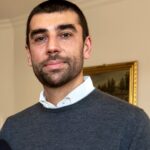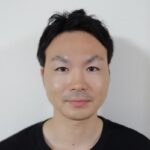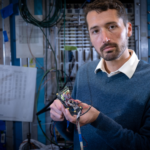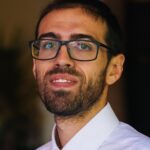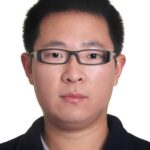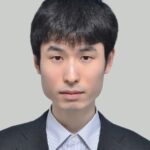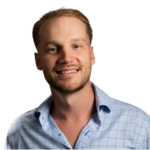Program Plenary Speakers
The ASC 2024 Conference continues our long-standing tradition of creating an exciting program including a slate of vibrant plenary speakers who will discuss important topical research in a form accessible to all attendees.
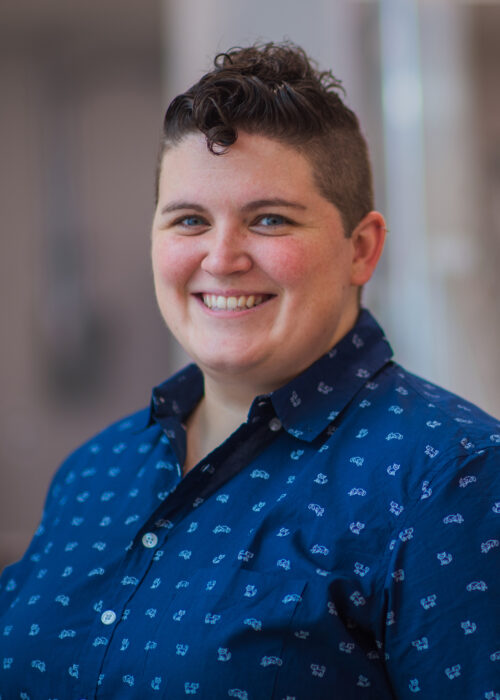
Darby Dunn
Vice President of Production, Commonwealth Fusion Systems
Presenting on: Monday, September 2, 2024 | 8:15 a.m.
Darby Dunn is the Vice President of Production at Commonwealth Fusion Systems, a clean energy startup based in Devens, MA, where she is responsible for the company’s day-to-day operations including manufacturing and facilities. Supported by the world’s leading investors and a collaborative partnership with MIT’s Plasma Science and Fusion Center, the CFS team is driven by the climate change crisis to develop the fastest path to commercial fusion energy. In her previous role as Head of Manufacturing, Darby led the production of the world’s largest high-temperature superconducting magnet which successfully demonstrated the key technology needed to enable net-positive fusion energy. Before joining the CFS team in early 2019, Darby spent a decade at SpaceX developing and manufacturing the Dragon spacecraft to deliver cargo and astronauts to the International Space Station. Darby also co-founded the LGBTQ employee interest groups at both SpaceX & CFS and she is actively involved in STEM outreach events, including sitting on the Board of Directors for Out For Undergrad. She was also named to Business Insider’s list of the Most Powerful Female Engineers of 2017 and to the World Economic Forum’s Young Global Leaders in 2018. Darby received her B.S. in Aerospace Engineering from the Massachusetts Institute of Technology.
Presentation title: Production of HTS Magnets from Lab Scale to Commercial Fusion Power Plants
Abstract: Click here.
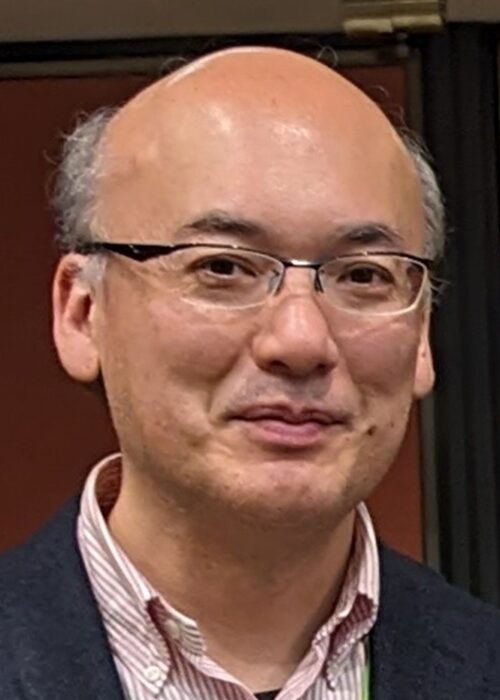
Kazumasa Iida
Professor of Electrical and Electronic Engineering, Nihon University, Japan
Presenting on: Tuesday, September 3, 2024 | 8:00 a.m.
Dr. Kazumasa Iida is a full professor of Electrical and Electronic Engineering at Nihon University. He spent the University of Cambridge from 2004 to 2007 as a postdoctoral researcher under the supervision of Prof. David A Cardwell. After spending 3.5 years in Cambridge, he joined the group led by Prof. Bernhard Holzapfel at the IFW Dresden as a senior scientist. He was appointed as an associate professor at Nagoya University in 2014 and as a full professor at Nihon University in 2022 His research experience covers a wide range of materials, involving the fabrication of Sr-ferrite magnets, the growth of garnet films for magneto-optical imaging, and the growth of HTS and Fe-based superconducting materials in the form of bulks and thin films. He has published more than 200 peer-review research papers. He is currently in the editorial board of Superconductivity.
Presentation title: Status of Iron Based Superconductors: Characteristics and Relevant Properties to Applications
Abstract: Click here.
See the slides of the presentation here.
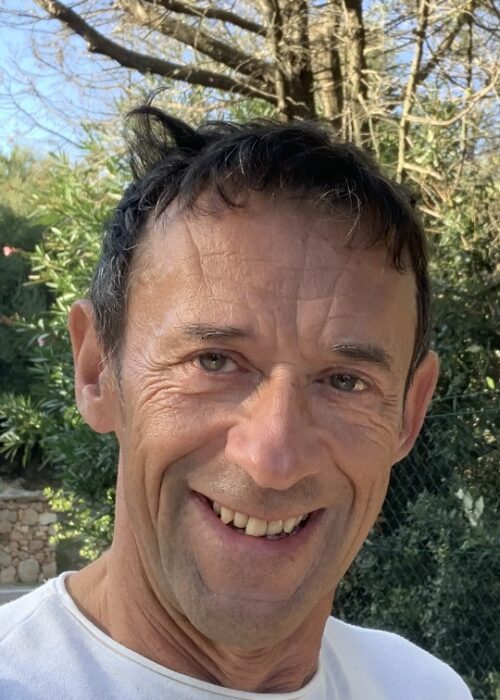
Ezio Todesco
Senior Scientist, CERN
Presenting on: Wednesday, September 4, 2024 | 8:00 a.m.
Dr. Ezio Todesco received his PhD in Physics at the University of Bologna, Italy, on the stability of classical mechanical systems and chaotic motion with application to beam dynamics in circular colliders. In the nineties he participated to the studies of nonlinear motion of protons in the foreseen Large Hadron Collider, and to their long-term stability in view of the magnetic field imperfections. He then joined the CERN magnet group to follow and guarantee the field quality in the production of the LHC main magnets. At the end of the LHC production, he oversaw the magnetic model of the collider during the commissioning phases and in the following runs. In 2007, he started working on the upgrade of the LHC luminosity, focusing on magnet design and on the optics of the interaction regions. Since 2011 he has been leading the worldwide collaboration building the interaction region magnets in the HL-LHC project, with the first Nb3Sn magnets to be installed in a collider in 2026-2028. In 2024, he became the lead for the High Field Magnet program at CERN, in collaboration with numerous institutes and laboratories. He has been teaching superconducting magnet for particle accelerators at the U.S. Particle Accelerator School, at CERN Accelerator School, and at the University of Milano Bicocca. He has been a member of the ASC board since 2020, and he is the author of over 300 publications and contributor to several books.
Presentation title: Status and Perspectives in High Field Superconducting Magnets for Particle Accelerators
Abstract: Click here.
See the slides of the presentation here.
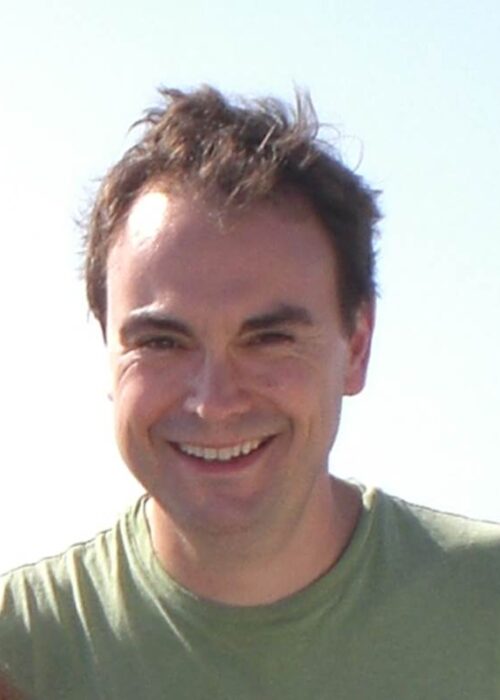
Ken Segall
Professor of Physics, Colgate University
Presenting on: Thursday, September 5, 2024 | 8:15 a.m.
Dr. Ken Segall has been working in superconducting electronics since 1995. His areas of research include superconducting detectors, nonlinear dynamics in superconducting circuits, superconducting quantum computing, quantum tunneling in Josephson arrays, synchronization in superconducting networks, numerical simulation of superconducting circuits, and superconducting artificial neurons and synapses. Dr. Segall received his Ph.D. from Yale University in 1999 in the department of Applied Physics where he was the winner of the Harding Bliss Award for Excellence in Applied Physics and Engineering. After some postdoctoral work at Yale, he was a postdoctoral associate at M.I.T. in the Electrical Engineering Department for three years. In 2003 he started as an Assistant Professor at Colgate University in the Physics and Astronomy department, where he has been ever since. He was promoted to Associate Professor in 2009 and Full Professor in 2017. He served as department chair in 2013 and from 2014-2017. His teaching interests include Thermodynamics, Nonlinear Dynamics and Chaos, Solid State Physics, Electricity and Magnetism, Mechanics, Quantum Mechanics, Math Methods of Physics, and Sports Statistics and Analytics. He lives in Central New York with his wife and two children.
Presentation title: Neuromorphic Computing Using Superconducting Electronics
Abstract: Click here.
See the slides of the presentation here.
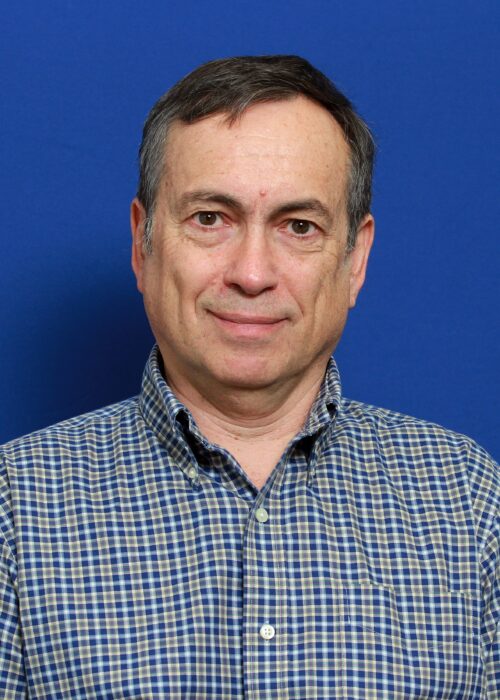
Alex Gurevich
Professor of Physics and Eminent Scholar, Old Dominion University
Presenting on: Friday, September 6, 2024 | 8:00 a.m.
Professor Gurevich is a theoretical condensed matter physicist specializing in superconductivity and materials science of high-performance superconductors carrying high current densities at high dc magnetic fields or operating under large-amplitude radio-frequency electromagnetic fields. His recent works have addressed anomalously large upper critical fields in alloyed MgB2, microwave reduction of nonlinear surface resistance and new ways of boosting the microwave performance of superconducting resonators by surface nanostructuring. In 1989 he was awarded the Humboldt Fellowship to work on the high-Tc cuprares at the Institute of Technical Physics at KFK, Karlsruhe. From 1992 to 2006 he was a senior scientist in the Applied Superconductivity Center at University of Wisconsin-Madison, where he worked on current-limiting mechanisms in superconducting materials. In 2006 he was a staff scientist at NHMFL, where he worked on properties of the newly discovered iron-based superconductors at high magnetic fields. In 2012 he joined the faculty of the Physics Department at Old Dominion University as a full professor. Gurevich is a Fellow of the American Physical Society. He has published two books and more than 190 journal papers and has given 110 invited talks.
Presentation title: What Should We Look for in New Superconductors to Make Them Useful?
Abstract: Click here.
See the slides of the presentation here.
ELEVATE - Early Career Plenary Speakers
In the frame of the ELEVATE Program, for the purpose of promoting professional & leadership development, an Early Career Plenaries event has been organized at the 2024 Applied Superconductivity Conference. This event follows the line traced by successful Young Scientist Plenary events at past Applied Superconductivity and Magnet Technology conferences, offering to early career scientists that are contributing significantly to developments in applied superconductivity, the prestigious opportunity to illustrate with short plenary talks their achievements or vision for future directions in our field. The early career scientists will be selected among recommendations made by the Program Committee, to have demonstrated outstanding, significant potential in the field of superconductivity and have gained the recognition and interest of other scientists in the community. The organizing committee believes that this addition to the plenary sessions gives the entire applied superconductivity community exposure to the novel thoughts, approaches and unexplored paths that these early career scientists can deliver. We will be soliciting applications for this program in Spring 2024.
The Early Career Plenary session is taking place on Thursday, September 5, 2024, from 9:30 – 10:30 AM.
Our Early Career Plenary Speakers are:
|
Andrea Masi |
Andrea Masi is a researcher in ENEA, Italian National Agency for New Technologies, Energy and Sustainable Economic Development. Graduated in Material Science, he received his PhD in Systems for Energy and Environment in 2017, and since then has been working in the superconductivity field. His current activities embrace the development of HTS materials from several point of views, ranging from the material synthesis to the superconducting characterization of wires, tapes and cables. He is involved in activities devoted to the evaluation of the potential of iron-based wires and tapes and leads an EUROfusion Enabling Research (ENR) project focused on the development of pnictides wires via the power in tube method. He is also involved in the design and production of high-performance cables for fusion applications based on cuprates materials, focusing on critical issues such as cable stability and quench detection. Presentation title: HTS materials for fusion applications: challenges and perspectives See the slides of the presentation here. |
|
Shun Miura |
Shun Miura is a Doctor of Engineering, Nagoya University in Japan and is currently working as an assistant professor in Kyushu University in Japan. Shun Miura has been developing superconducting rotating machines for electric propulsion system for aircraft and urban air mobility in Kyushu University for seven years. In addition, he has been studying cabling design of coated conductors and electromagnetic phenomena of superconductivity such as flux pinning, AC loss and current distributions. Presentation title: Strategies of superconducting motors aimed at future cryo-electric aircraft See the slides of the presentation here. |
|
|
Reed Teyber is a research scientist in the superconducting magnet program at Lawrence Berkeley National Laboratory (LBNL). His professional interests span a range of experimental and numerical topics across magnetics, cryogenics, instrumentation, and optimization. This background enables his work developing HTS magnet diagnostics and leading the LBNL magnet test facility upgrade towards hybrid LTS-HTS testing. Presentation title: Towards Smart, Protectable and Reconfigurable HTS Magnets See the slides of the presentation here. |
|
|
Daniele Torsello is currently a fixed-term assistant professor at the Department of Applied Science and Technology of Politecnico di Torino and an INFN associate researcher. With a background in both Materials Science and Physics, he received his Ph.D. in Physics in 2020 from Politecnico di Torino, employing microwave techniques to study iron-based superconductors. Since 2023, Dr. Torsello is the principal investigator of an international project funded by the Italian Ministry for Foreign Affairs and International Cooperation for the “study of high-temperature superconductors neutron radiation damage for compact fusion reactors” in collaboration with MIT-PSFC. Overall, his research is focused on investigating experimentally and computationally the response of superconductors to high energy particle irradiation. These studies are aimed at: 1) understanding the fundamental mechanisms of superconductivity in novel materials, 2) the optimization of vortex pinning in practical superconductors, and 3) the investigation of the radiation hardness of high-temperature superconductors for fusion applications. Presentation title: HTS for fusion applications: the challenges of irradiation See the slides of the presentation here. |
|
|
He Huang, who received his Ph.D. in Electrical Engineering at the University of Chinese Academy of Sciences in 2019, is a young scientist in the field of superconducting materials. As an associate professor at the Key Laboratory of Applied Superconductivity, Institute of Electrical Engineering, Chinese Academy of Sciences, his research focuses on iron-based superconductors, aiming to understand their properties and potential applications. He has made groundbreaking advancements in the investigation and fabrication of high-performance superconducting wires and tapes, elevating the critical current density of iron-based superconducting tapes to new heights. He has collaborated with world-renowned laboratories in the United States, Japan, Geneva, and other countries, and has achieved many achievements in the field of iron-based superconducting wires and tapes, which greatly promoted the practical research of iron-based superconductors. His work has been highly regarded, for which he won the TOP CITED PAPER AWARD from IOP Publishing. He has published more than 40 journal papers in Superconductor Science and Technology, Scripta Materialia, Journal of Applied Physics, et al. and has given several orals and posters at international conferences such as the ASC, EUCAS, ISS, et al. Presentation title: Status and Perspectives in Fabrication of Iron-based Superconducting Wires and Tapes See the slides of the presentation here. |
|
|
Taiki Yamae is a researcher in the Global Research and Development Center for Business by Quantum-AI Technology (G-QuAT) at the National Institute of Advanced Industrial Science and Technology (AIST). He received a Ph.D. degree in electrical and computer engineering from Yokohama National University, Yokohama, Japan, in 2023. He is studying superconducting integrated circuits, especially adiabatic quantum-flux-parametron logic. Presentation title: Reversible circuits using adiabatic superconductor logic for energy-efficient computing systems |
|
|
Boris Korzh received a Master’s degree in Physics from Imperial College London in 2012, completing the research thesis at the Max Plank institute for the Science of Light in Erlangen, Germany. He received a PhD in Physics from the University of Geneva in 2016, specializing in single photon detection with semiconductor- and superconductor-based devices as well as applications in quantum communication. Between 2017-2019 he was a postdoctoral scholar at NASA’s Jet Propulsion Laboratory (JPL) in Pasadena, California and held a Visiting Researcher position at NIST, Boulder. In 2019 he became a member of the Research Staff at JPL and a Visiting Scientist at Caltech. In 2024 he became an Assistant Professor of Physics at the University of Geneva. His research interests include superconducting nanowire detectors and imagers, and their applications in quantum communication, high energy physics, astronomy, biomedicine, and remote sensing. Presentation title: Large-scale superconducting nanowire detectors for quantum technologies See the slides to the presentation here. |
